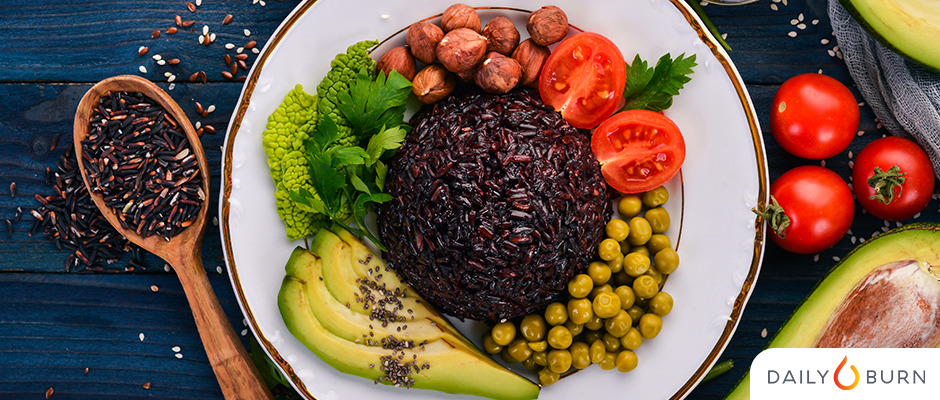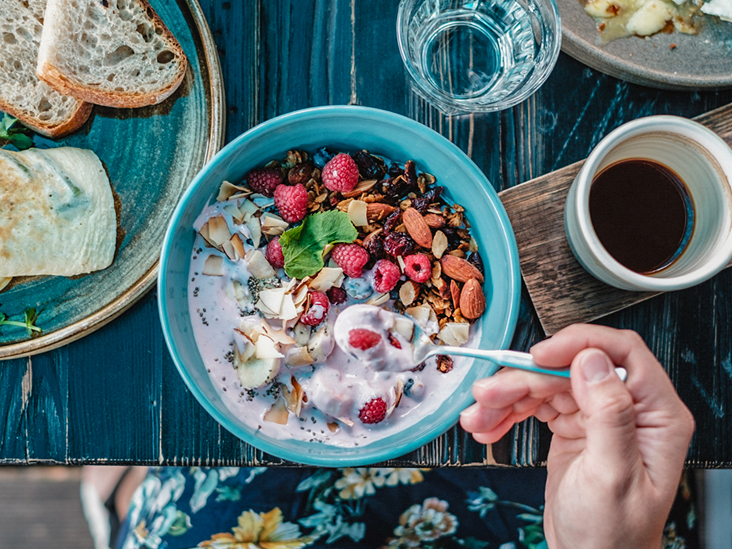
While addressing the health challenges of aging, the Decade of Healthy Ageing is a global initiative that is aimed at improving the lives of older people. Its purpose is to prevent the spread of age-related disorders and improve their prevention management and treatment. The decade will concentrate on the prevention of age-related diseases and the improvement of quality of life for older adults. It will advance research on ways to improve health, well-being, and to develop person-centred integrated and community-based care for the elderly.
It is important that you stay active. Active living and mental sharpness are important aspects of healthy aging. For those who feel depressed, it is a good idea to seek out antidepressant medications and counseling. A healthy diet, avoiding foods high in fat and salt, and engaging in safer sexual activities can help improve your quality of life and maintain your independence. There are many ways to stay active and keep your health good, including regular exercise.

Healthy aging also requires social interaction. Engaging in activities with others can keep us active and happy. Social interaction can help us feel connected and keep our health in check. It is important to keep up with our friends and family, because it may be our last time to meet them. As we get older, we face many health challenges that could make life less fun. There are solutions.
Being physically active will keep the brain sharp and active. This will improve your memory and mental faculties. Counselling or antidepressant medications are recommended for anyone suffering from depression. Avoid unhealthy food and excess fat. Engage in safe sex. It will help you enjoy your later years better. You will be grateful for it later. There are many methods to be physically or mentally active.
Today, healthy aging is a hot topic. As we live longer lives, the average age of each person in every country is increasing. One in six people over 60 will be alive by 2030 and 80 percent of those aged 80 years or older will have reached their 80s. As the world population continues to age, the benefits of healthy aging will continue to accrue. Your ability to age gracefully will be helped by a healthy diet. You will also be healthier mentally if you exercise and eat well.

Being physically active isn't enough to help you age well. Your lifestyle is key to your mental and physical well-being. Eat a variety of nutritious foods, exercise regularly, and practice portion control. Research has shown that anti-aging treatments can actually reverse the aging process. This lifestyle change will allow you to live longer and be healthier. AARP has been promoting anti-aging since many years.
FAQ
Exercise: Good or Bad for Immunity?
Exercise is good to your immune system. Exercise increases white blood cell production, which helps fight off infection. Your body also eliminates toxins. Exercise helps to prevent heart disease and cancer. It also reduces stress levels.
Exercising too frequently can make your immune system weaker. Exercising too hard can make your muscles sore. This causes inflammation and swelling. Your body then has to produce more antibodies to fight off infection. The problem is that these extra antibodies can cause allergies and autoimmune disorders.
So, don't overdo it!
Is being cold good for your immune system.
Cold can make you less immune to infection because your body makes fewer white blood cells, which are essential for fighting infections. But, cold makes you feel better. Your brain releases endorphins that reduce pain.
What's the difference of a calorie versus a Kilocalorie?
Calories can be used to measure how much energy is in food. Calories are a unit of measurement. One calorie is the amount of energy required to heat one gram water one degree Celsius.
Kilocalories are another term for calories. Kilocalories equal one thousandth of a calorie. 1000 calories are equal to one kilocalorie.
What's the difference between a virus & a bacterium?
A virus is a microscopic organism that cannot reproduce outside its host cell. A bacterium is an organism that splits itself in two. Viruses have a very small size (about 20 nanometers), while bacteria is larger (up to one micron).
Viruses can be spread by contact with bodily fluids containing infected substances, such as saliva, urine and semen. Bacteria can easily be spread from direct contact to contaminated surfaces and objects.
Viruses may enter the body through cuts, scrapes. bites, or any other break in the skin. They may also enter through the nose, mouth, eyes, ears, vagina, rectum , or anus.
Bacteria can be introduced to our bodies by cuts, scrapes or burns. They may also be introduced into our bodies through food and water as well as soil, dirt, dust, and animals.
Both bacteria as well as viruses can cause illness. But viruses do not have the ability to multiply within their hosts. They infect only living cells, causing illness.
Bacteria can multiply within their hosts and cause illness. They can also invade other parts of your body. They can even invade other parts of the body, which is why antibiotics are necessary to eradicate them.
These are the 7 secrets to a healthy life.
-
Take care of your health
-
Exercise regularly
-
Sleep well
-
Make sure to drink plenty of water.
-
Get adequate rest
-
Be happy
-
Smile often
What are the top 10 healthy habits?
-
Have breakfast every day.
-
Don't skip meals.
-
Maintain a balanced diet.
-
Drink lots of water.
-
Take care of yourself.
-
Get enough sleep.
-
Avoid junk food.
-
Do some exercise every day.
-
Have fun
-
Make new friends.
Statistics
- WHO recommends reducing saturated fats to less than 10% of total energy intake; reducing trans-fats to less than 1% of total energy intake; and replacing both saturated fats and trans-fats to unsaturated fats. (who.int)
- In both adults and children, the intake of free sugars should be reduced to less than 10% of total energy intake. (who.int)
- According to the 2020 Dietary Guidelines for Americans, a balanced diet high in fruits and vegetables, lean protein, low-fat dairy and whole grains is needed for optimal energy. (mayoclinichealthsystem.org)
- Extra virgin olive oil may benefit heart health, as people who consume it have a lower risk for dying from heart attacks and strokes according to some evidence (57Trusted Source (healthline.com)
External Links
How To
10 Tips for a Healthy Lifestyle
How to keep a healthy lifestyle
We live in a fast paced world, where we don’t get enough sleep and smoke cigarettes. We don't properly care for our bodies.
When you work full-time, it is difficult to maintain a healthy diet and exercise program. It is even more difficult if you feel stressed. Then, your mind tells yourself that it cannot handle this situation any more so we feel guilty about it and give up.
You may feel that something is not right with your body. Seek out a doctor to discuss your current health condition. If nothing is abnormal, it might be stress due to your job.
Some people think they are lucky because their jobs enable them to regularly go to the gym or have good friends who encourage them to stay fit. They are fortunate. Those people don’t have any problems. They control everything. I wish every person could be like them. Many of us aren't able to find the right balance between our personal and professional lives. Many people fall prey to bad habits, which can eventually lead them to developing diseases like heart disease, diabetes and cancer.
Here are some ways to improve your daily life.
-
Get enough sleep, minimum 7 hours, maximum 8 hours. This includes proper sleeping positions and avoiding caffeine during the last hour before going to bed. Caffeine blocks melatonin hormones, making it difficult to fall asleep. You should also ensure that your bedroom has a dark, clean environment. Blackout curtains are a must, especially if you work late at nights.
-
Take a balanced breakfast. Sugar products, fried food, processed foods and white breads should be avoided. For lunch, try to include fruits, vegetables and whole grains. A good snack option for afternoon is to include protein-rich snacks like nuts, seeds, beans and dairy products. Avoid unhealthy snacks like chips, candies, cookies, cakes and sodas.
-
Get enough water. Many people don't get enough. Water aids in weight loss, skin health, digestion, and keeps our skin young and supple. Six glasses of water per day will help you lose weight quicker. The best way of determining your hydration is to check the color in your urine. Dehydrated is yellow, orange dehydrated slightly; normal pink urine; overhydrated red urine; and clear urine indicates highly-hydrated.
-
Exercise - Regular physical activity has been proven to increase energy levels and reduce depression. Walking is a good way to get fit and improve your mood. Even though it may look easy, walking requires focus and concentration. Walking requires your brain to be focused on the task at hand, and you need to breathe slowly and deeply. A 30 minute walk at a moderate pace for about 100 calories can burn between 100-150 calories. Start slowly and increase your pace gradually. To prevent injuries, be sure to stretch after exercising.
-
Be positive - Positive thinking is essential for mental health. Positive thinking makes it easier to create a happy space within yourself. Negative thoughts cause anxiety and drain our energy. Focus on what you want and do the things that will keep you motivated. Reduce the number of tasks you have to do in order to feel less overwhelmed. Remember that you are bound to fail sometimes but just pick yourself up and start again.
-
Learn to say No. We are often so busy that our attention is not focused on the important things we are doing. It is important for you to know when to say "No" and how to do it. Not saying "no" is rude. Saying No is simply saying that you cannot take care of something right now. You will always find another way to do the job. Set boundaries. Ask someone else to help you out. Delegate the work to someone else.
-
Take care of your body - Keep track of your diet. Eat healthier foods to boost metabolism and shed extra weight. Avoid eating anything heavy or oily as they can raise cholesterol levels. Good advice is to eat three meals and 2 snacks each day. You should consume around 2000 - 2500 calories per day.
-
Meditate - Meditation is a great stress reliever and reduces anxiety. Relax your mind by sitting still with your eyes closed. This exercise will give your mind clarity, which is very important in making decisions. Meditation regularly can make you happier and more calm.
-
Breakfast is the most important meal you should eat each day. Skipping breakfast may cause you to eat more at lunchtime. It's never too late for a healthy breakfast, as long as it is eaten within an hour of your waking hours. Eating breakfast increases your energy level and helps you to control your hunger.
-
Make sure you eat clean food. Food has a greater impact on your mood than you realize. Avoid junk food and food that contains artificial ingredients or preservatives. These products make your body acidic and will cause you to crave them. Fruits and vegetables are rich in vitamins and minerals that improve overall health.